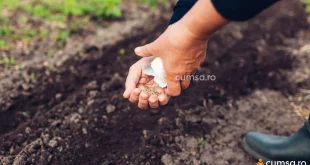
Vegetables and herbs are basic in each kitchen, giving mind-blowing flavors and various wellbeing benefits. Whether you’re developing your possess create or buying new from the advertiser, including more vegetables and herbs to your diet is one of the best things you can do for your health.
But why ought to you develop your claim vegetables and herbs? Other than having access to new, pesticide-free nourishment, cultivating is a fulfilling action that interfaces you with nature and makes a difference in decreasing stretch. Whether you have a patio plant, an overhang, or fair a few pots in your kitchen, developing your claim nourishment is simpler than you might think.
The Benefits of Eating Vegetables and Herbs
Nutritional Benefits of Vegetables
Vegetables are stuffed with fundamental supplements that back in general wellbeing. A few key benefits include:
- Rich in Vitamins and Minerals: Verdant greens like spinach and kale give press, Vitamin C, and antioxidants.
- High in Fiber: Vegetables such as carrots, cucumbers, and beans offer assistance with assimilation and intestine health.
- Heart Wellbeing: Tomatoes and chile peppers contain capable cancer prevention agents that bolster heart function.
- Weight Administration: Moo in calories but tall in supplements, vegetables offer assistance you feel full whereas keeping up a sound weight.

Why Herbs Are a Must-Have
Herbs not as it were include flavor to suppers but also offer restorative benefits. A few of their key preferences include:
- Boosting Insusceptibility: Herbs like basil, oregano, and thyme contain antibacterial properties.
- Aiding Absorption: Peppermint and fennel diminish bloating and stomach discomfort.
- Reducing Push: Chamomile and lavender offer assistance with unwinding and superior sleep.
Adding new vegetables and herbs to your suppers not as it were upgrades the flavor but also guarantees that you’re devouring more characteristic and chemical-free supplements. Not at all like prepared nourishments, new deliver contains no additives or manufactured added substances, making it the most beneficial choice for your body.
Best Vegetables to Develop and Use
Growing your claim vegetables guarantees that you have access to new and chemical-free creations. Here are a few of the best vegetables you can grow:

Nutritional Benefits of Vegetables
Growing your own vegetables is not only satisfying but also ensures that you consume fresh, pesticide-free produce. Here are some easy-to-grow vegetables that thrive in most climates.
Leafy Greens
Leafy greens are one of the least demanding and quickest vegetables to develop. They flourish in most climates and can be gathered numerous times all through the developing season.
- Spinach: Fast-growing and wealthy in press, culminate for servings of mixed greens, smoothies, and soups.
- Lettuce: A staple for new servings of mixed greens, simple to develop in any season.
- Kale: A nutrient-dense superfood that includes a sound crunch to meals.
Root Vegetables
Root vegetables develop underground, making them perfect for little gardens or holder cultivating. They store well, making them an extraordinary addition to any pantry.
- Carrots: Sweet and crunchy, incredible for snacking and including to dishes.
- Beets: Stuffed with cancer prevention agents and useful for blood weight regulation.
- Radishes: Quick-growing and include a hot kick to salads.
Fruit Vegetables
Some vegetables are in fact natural products, but they are commonly utilized in savory dishes. These plants frequently require more daylight and space to grow.
- Tomatoes: One of the most flexible vegetables, incredible for sauces, servings of mixed greens, and cooking.
- Cucumbers: Reviving and hydrating, idealize for summer dishes.
- Bell Peppers: Accessible in distinctive colors, wealthy in Vitamin C, and incredible for stuffing or roasting.
Essential Herbs to Develop and Use
Herbs are unimaginably simple to develop and can be utilized in cooking, teas, and characteristic cures. They require small space and can flourish in pots on a windowsill or balcony.
Culinary Herbs
Culinary herbs are basic for including flavor to dishes and improving the taste of your favorite recipes.
- Basil: A must-have for Italian dishes, pesto, and new salads.
- Oregano: Common in Mediterranean food and known for its antibacterial properties.
- Rosemary: Idealize for flavoring meats, potatoes, and bread
Medicinal Herbs
These herbs are known for their recuperating properties and can be utilized for back by and large wellness.
- Chamomile: Utilized in home grown teas to advance unwinding and sleep.
- Lavender: Known for its relieving smell and benefits for uneasiness relief.
- Echinacea: Makes a difference boosts the resistant framework and battle colds.
Aromatic Herbs
Aromatic herbs are idealize for making home grown teas, fundamental oils, and normal discuss fresheners.
- Mint: A reviving herb for drinks, sweets, and home grown remedies.
- Lemongrass: Utilized in Asian food and home grown teas, known for its calming effects.
- Thyme: Includes flavor to soups, meats, and stews whereas moreover advertising antibacterial benefits.

How to Develop Successfully
Choosing the Right Soil
Healthy soil is key to developing solid and nutritious plants. Utilize well-draining soil blended with compost to progress richness and dampness retention.
Sunlight and Watering Needs
- Most vegetables require 6-8 hours of coordinate daylight daily.
- Herbs flourish with 4-6 hours of sunlight.
- Water routinely but maintain a strategic distance from overwatering to anticipate root rot.
Container Cultivating vs. Conventional Gardening
- Container Planting: Perfect for little spaces like overhangs and patios.
- In-Ground Planting: Appropriate for huge plants like tomatoes and root vegetables. Gives superior soil profundity and room for plant growth.
Harvesting and Putting away Vegetables and Herbs
When to Harvest
Leafy Greens: Choose external clears out when they reach a usable size.
Root Vegetables: Collect when they reach their develop estimate (check seed bundles for particular timing).
Herbs: Cut clears out early in the morning for the best flavor and fragrance.
Best Capacity Methods
- Refrigeration: Store verdant greens and delicate vegetables in hermetically sealed containers.
- Drying Herbs: Hang herbs in a cool, dry place to protect their smell and potency.
- Freezing: Chop new herbs and solidify them in an ice 3D-shaped plate with olive oil for simple use in cooking.

Salads and Smoothies: Including new spinach, cucumbers, and tomatoes to servings of mixed greens makes for a reviving and solid feast. Additionally, mixing kale or beets into smoothies gives an moment supplement boost.
Hearty Soups and Stews: Vegetables like carrots, chime peppers, and tomatoes work well in soups and stews, giving lavishness and profundity of flavor.
Cultivating and utilizing garden produce and natural herbs is a fulfilling experience that improves both your diet and well-being. Whether you have a garden or just a small windowsill, there are plenty of ways to cultivate fresh produce at home. By taking care of your plants and using them in your daily meals, you can enjoy a sustainable and healthy lifestyle.
 Spring Garden
Spring Garden




